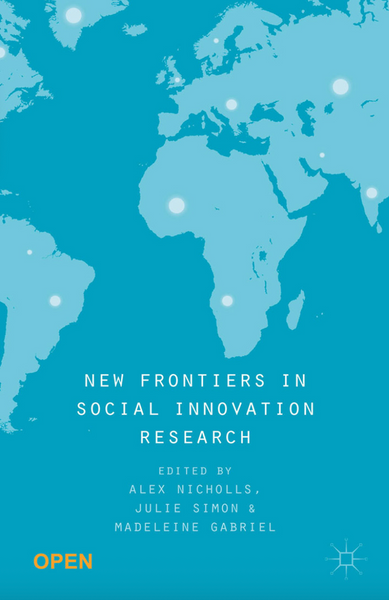

DEVELOPED BY


IN PARTNERSHIP WITH
FUNDED BY










Good Governance grounds Prosperity
Social economy organizations — whether structured as foundations, associations, cooperatives or commercial companies with a social mission — play a crucial role in addressing social and environmental challenges. In Portugal, these entities operate within a specific legal and institutional framework that shapes their legitimacy, sustainability and impact.
Legal requirements and governance structures are essential for ensuring the long-term viability and legitimacy of regenerative projects. Governance defines how decisions are made, who holds power, and how responsibilities are distributed within an organization. It encompasses the framework of rules, practices, and processes by which entities operate and make decisions to achieve their goals. When aligned with regenerative principles, governance systems foster transparency, accountability, and inclusive participation, creating resilient entities that can adapt to changing circumstances while maintaining integrity and purpose. Effective entity governance also involves strategic planning, risk management, compliance with laws and regulations and ethical conduct.
Regenerative projects must navigate complex legal landscapes that vary depending on location, industry, and project scope. Compliance with laws related to environmental protection, land use, labor rights, and corporate structure is critical to avoiding legal risks and ensuring that the project operates ethically and sustainably. Beyond compliance, legal frameworks can be leveraged to reinforce the regenerative mission, incorporating cooperative structures, community ownership models, and impact-driven legal forms to ensure long-term alignment with project values.
Effective governance systems must also be dynamic and participatory. Traditional hierarchical models often struggle to accommodate the complexities of regenerative initiatives, which require flexibility and collective decision-making. Implementing distributed governance structures may allow projects to remain adaptable while ensuring that the stakeholders have a voice in shaping the direction of the initiative. In this way, governance becomes not just a structural necessity but a key enabler of regeneration.
Having this in mind, please answer to this Pre-Session Questionaire in your workbook:
1. What type of organization do you have?
2. How familiar are you with the legal obligations applicable to your type of entity in Portugal?
3. How would you describe the way decisions are made in your organization?
4. Are you currently facing any legal or governance challenges (e.g. updating statutes, decision-making conflicts, unclear responsibilities)?
5.. What are your organization’s main sources of funding?
6. Do you feel your organization has the necessary structure to access and manage funding effectively?
7. What would you most like to learn or clarify during the session?
8. Anything else you'd like to share with us ahead of the training?
These answers will help VdA to understand the group better and deliver more relevance during the in person session :)

“Good governance is perhaps the single most important factor in eradicating poverty and promoting development.”
KOFI ANNAN, Former Secretary-General of the United Nations





MUST READ
New Frontiers in Social Innovation Research
This collection of readings explores the multifaceted nature of social innovation, examining its rise as a concept and practice across various sectors globally. It analyzes the theoretical underpinnings of social innovation, distinguishing it from technological and business innovation while highlighting the need for further research and clearer definitions. The texts investigate the processes and actors involved in social innovation, including the role of networks, collective intelligence, and citizen engagement, using case studies from different countries. Furthermore, the sources consider the relationship between social innovation and existing systems, such as markets, public policy, and welfare states, discussing its potential for transformation and its inherent challenges and complexities. Finally, it ponders the broader significance of a social innovation movement in addressing societal problems and envisioning alternative futures.



real-life examples
LEARN BY STUDYING
A sustainable intentional community that has successfully integrated regenerative governance practices, including consensus-based decision-making and land stewardship policies. This case illustrates how governance structures can support ecological and social regeneration through collaborative management and legal frameworks that protect community interests.
Ecovillage at Ithaca
USA
In 2022, Patagonia restructured its ownership model to align fully with its environmental mission. The company transferred ownership to a trust and a nonprofit organization, ensuring that all profits are reinvested in environmental protection and sustainability efforts. By legally embedding its commitment to regeneration, Patagonia has set a precedent for how businesses can integrate long-term governance models that prioritize planetary health over short-term financial gains.
Patagonia
GLOBAL
fundamental questions
LEARN BY ASKING

What legal frameworks and requirements must my project comply with?

How can governance structures enhance transparency, participation, and accountability?

What legal and governance models best align with my project's regenerative goals?

How can I integrate cooperative or participatory governance into my project?

What mechanisms can prevent mission drift and ensure long-term commitment to regenerative values?

“You might think you’re thinking your own thoughts. You’re not. You’re thinking your culture’s thoughts.”
JIDDU KRISHNAMURTI, CITED IN 'THE REGENERATIVE BUSINESS'
LEARN BY PRACTICING
assignments
01
MANDATORY
Deadline: 12th May
02
Answer the fundamental questions
RECOMMENDED
Deadline: 12th May
03
EXTRA
Deadline: 12th May
Compare the fundamentals of Social Innovation with the scope of Regeneration by listening to the must-read book
Still having doubts?

Online Clarification Session
5th & 15th May
6 - 7:30 PM (Lisbon Time)
Below, you’ll find the assignments grouped into three categories to help you prioritize your work effectively. Mandatory exercises are essential and must be completed. Recommended assignments will strengthen your understanding and are highly encouraged. If you have additional time and want to explore further, dive into the Extra category to deepen your knowledge of the topic.
To support you, we’ve also curated a list of key content from the hub. This content was carefully selected to help you complete the assignment, and includes an estimated time commitment for each item so you can better plan your learning journey.
Once you've completed your exercises, please upload your responses to your organization workbook using the link you received by email.
Having questions? Doubts? Thoughts you would like to share?
We are here for you. Reach out to info@boutique-impact.com and we'll come back to you shortly.
DEVELOPED BY


IN PARTNERSHIP WITH
FUNDED BY










.png)


